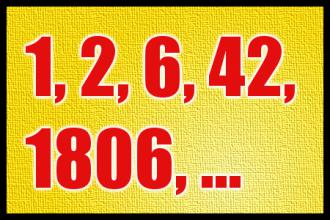What is the next number in the sequence?
What is the next number in the sequence 1, 2, 6, 42, 1806, ? (author: Brain Teasers & Riddles)Correct answers: 159
The first user who solved this task is Djordje Timotijevic.
#brainteasers #math #riddles


